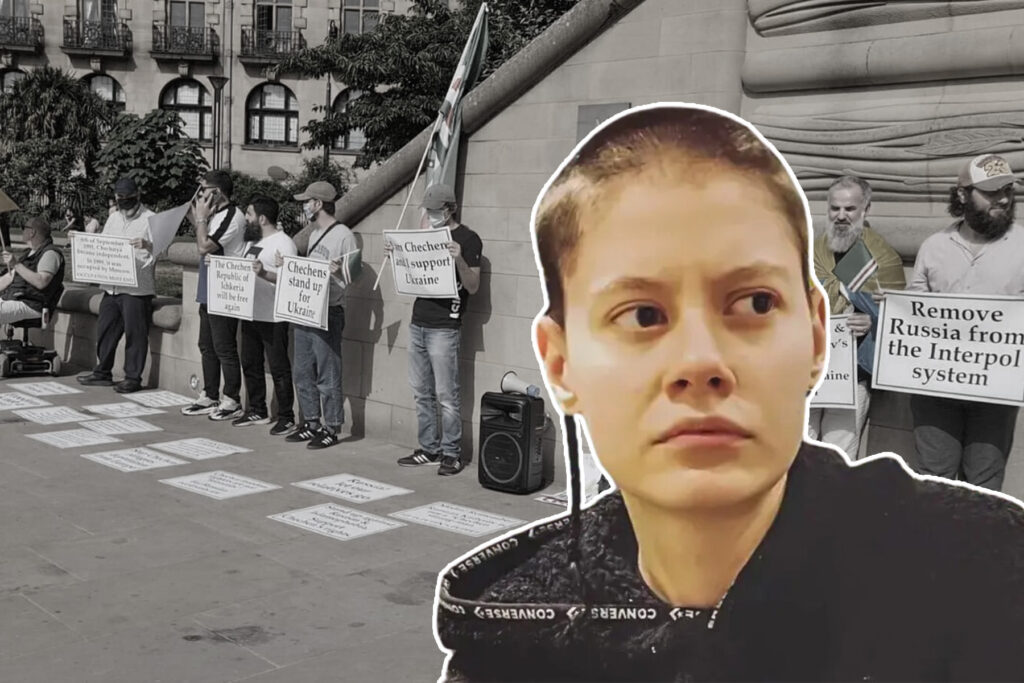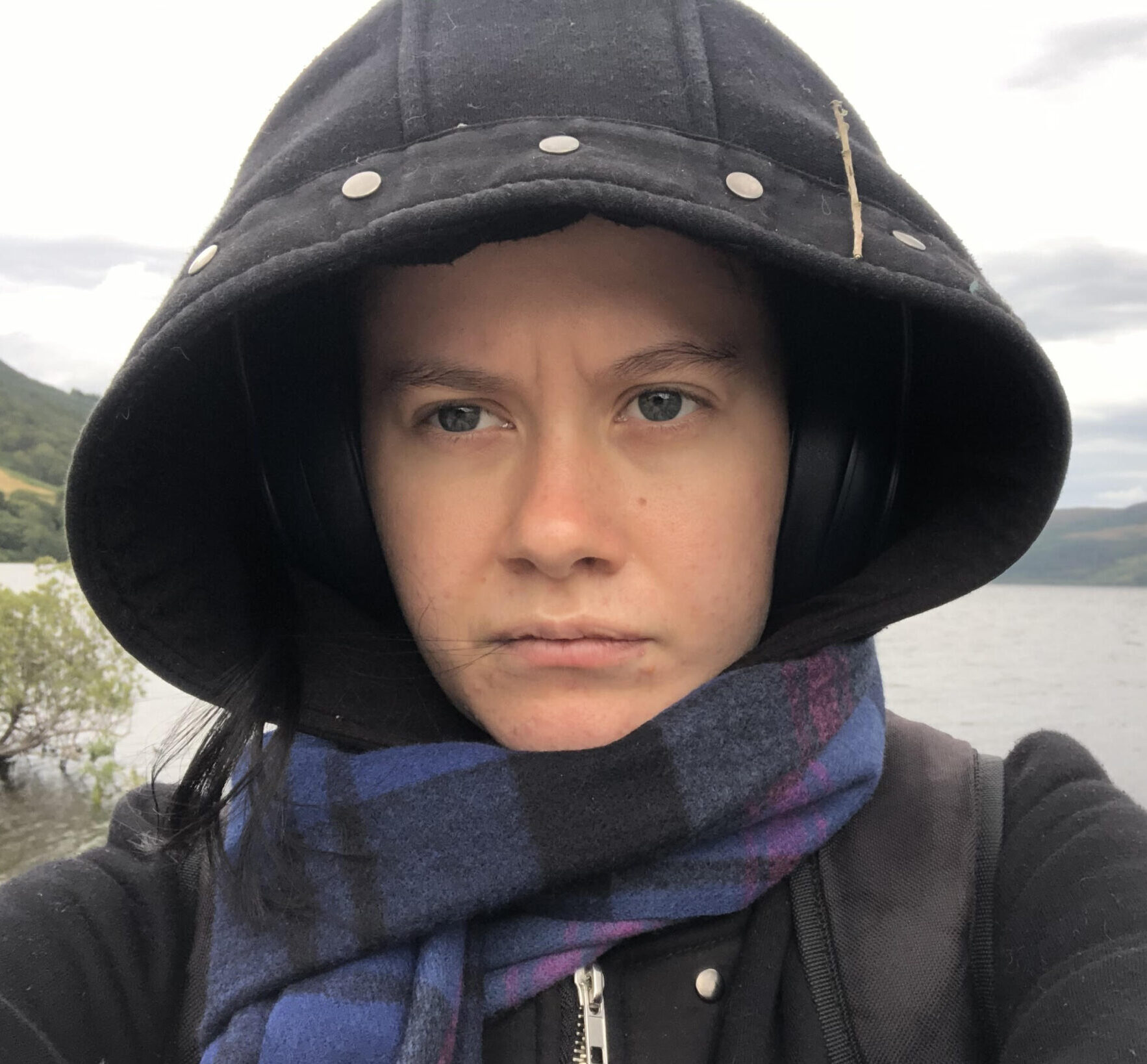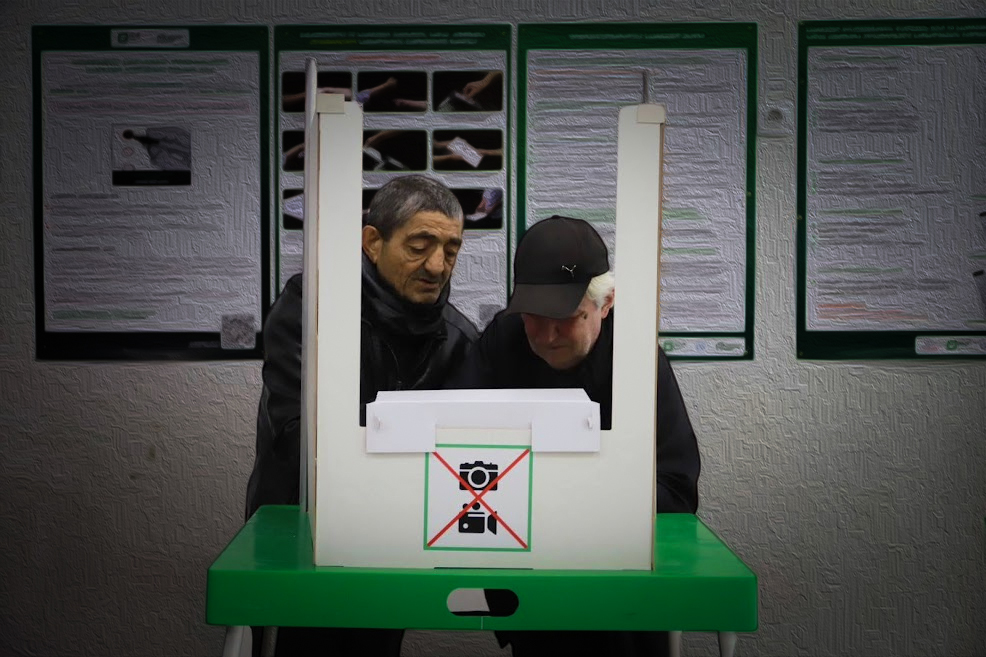Exiled from their republic due to threats to their lives, Chechen activists in the West navigate a difficult balance between visibility and caution, facing erasure by both Russian and Western society. However, Russia’s invasion of Ukraine might offer Chechnya and its activists a shift in the tides.
‘Ukraine’s incredible incursion into the Kursk region made me finally believe that Russia could soon be defeated’. This is what Ali Bakaev, a Chechen online activist who now lives in London tells me.
Ali, 31, says that for him the fight for Chechen independence is very personal: he lost both his parents in the Chechen wars of the 1990s and early 2000s. In later years, when he was a teenager, he was tortured and almost killed by Chechen police for allegedly having ‘political’ photos on his phone.
Such detentions are commonplace in Chechnya under Russian occupation, where police can persecute an individual for almost any action, no matter how inoffensive: from reading a prohibited book, to having the ‘wrong’ kind of beard. Both within and outside of formal structures, the consequences for speaking out against the occupying regime include kidnapping, torture, and death.
As a result, virtually all activists for Chechen, or Ichkerian, independence are based outside the republic. While fighting against Russian occupation of their republic, they simultaneously find themselves constrained by Western political narratives, acquiescence with Russian demands, and the ever-present threat of deportation.
But Russia’s full-scale invasion of Ukraine may have inadvertently bolstered the Chechen cause, with a shift in attitudes towards Russian colonisation and occupation outside the region potentially giving Chechen activists an opportunity to have their voices heard.
The changing face of Chechen activism
Such activists’ voices have been limited in both number and volume for pragmatic reasons. Many dissident Chechens in Europe go to significant lengths to conceal their identities, knowing that having their names or faces associated with their activism puts the lives of their relatives back home at risk.
The republic’s occupying government, headed by Ramzan Kadyrov since 2007, is known for not only torturing, jailing, and killing activists, but also targeting their family members.
The parents, siblings, aunts, and uncles of Chechen political refugees have in some cases have simply disappeared from their homes, with their fates frequently remaining unresolved indefinitely.
Others are sent to the frontline to fight Ukrainians, as with the nephew of opposition leader Akhmed Zakaev, or the male relative of a Chechen refugee, not a public figure, who held a pro-Ukrainian and anti-Putin banner at a protest in London.
‘If I make a single statement that the Russian government doesn’t like, my family back home will be severely punished’, explains Ayub, who has asked me not to use his full name. ‘As always, it’s a catch-22 for our nation: we can’t be silent and let the repression against our people continue, but if we speak up, our loved ones will suffer.’
Chechen online activism is a relatively new phenomenon, beginning around a decade ago. It was prompted at least in part by tight constraints on any activism or opposition within the republic, and is centred around video blogs, livestreams, and Telegram channels.
‘We speak in Russian, so our neighbours, including other Northern Caucasian nations and Ukrainians, can understand us’, says Ali.
Independent online activists like Ali, Tumso Abdurakhmananov, and Hassan Halitov exist alongside group-led Telegram news channels like NIYSO and 1ADAT.
But both the impact and legitimacy of such online activism remains a subject of debate.
Fatima Souleimanova, a representative of the Chechen independence organisation Bart Marsho and a prominent female Chechen activist, suggests that there has been a simultaneous increase in online activism, and decrease in real-world activism.
‘I don’t see that Chechen people are really mobilising’, says Fatima. ‘Chechen political leaders and online activists have become more vigorous, that’s true, but I can’t say the same about ordinary refugees.’
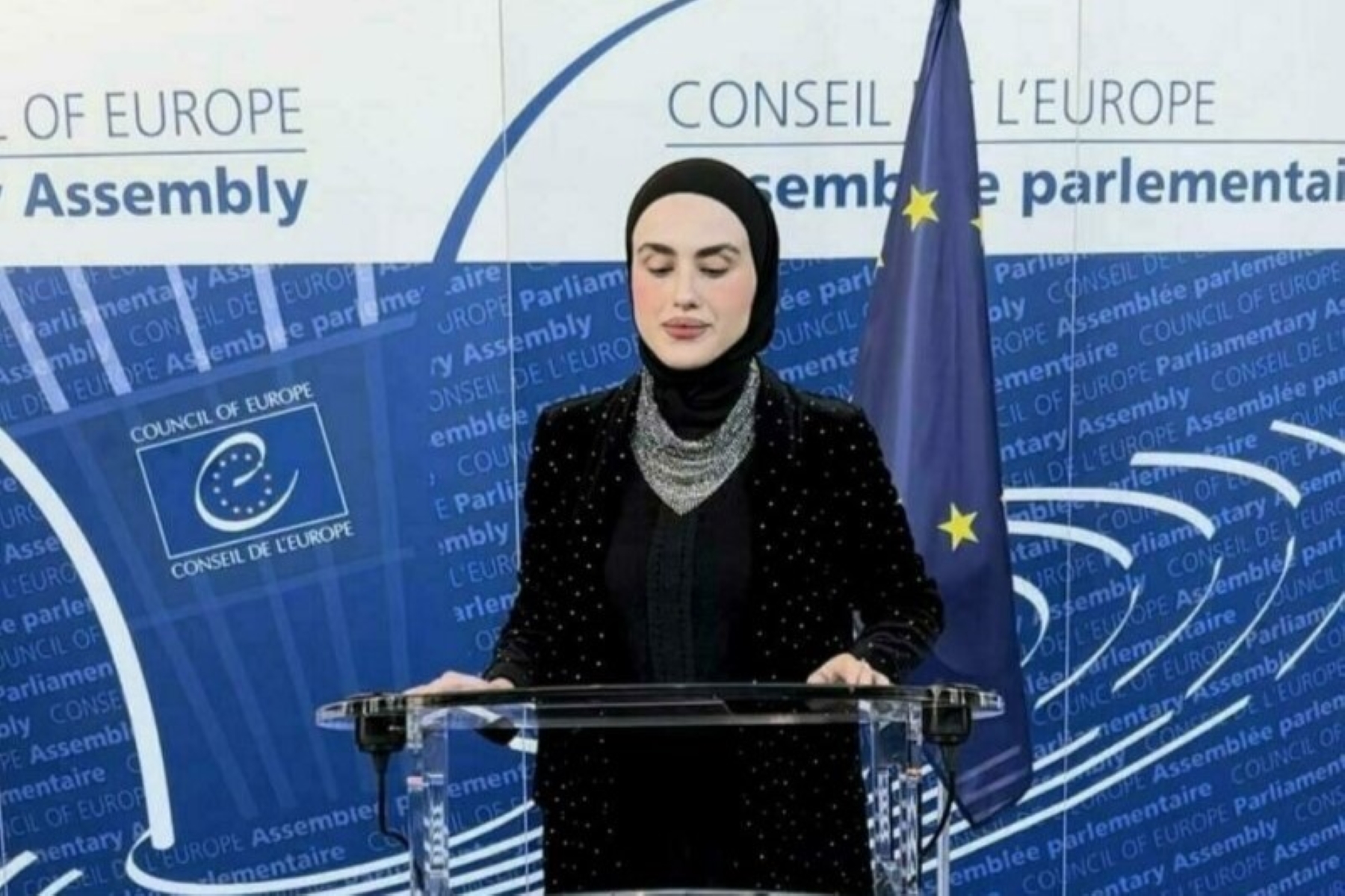
‘In 2017, we had much bigger political demonstrations: at one of Bart Marsho’s marches, we had nearly a thousand people! But now ordinary folks have become more confused’, says Fatima. ‘The Chechen diaspora has three different political forces that called themselves “the government in exile” and, in my opinion, all of them completely lack any actual legitimacy. Ordinary Chechen immigrants just don’t know whom to believe anymore because of all those conflicts.’
Two of those political forces in exile — the Parliament of the Chechen Republic of Ichkeria, led by Zhalaudi Saralyapov, and the Presidium of the Chechen Republic of Ichkeria, led by Akhyad Idigov — have had limited impact within and outside the diaspora.
However, Ahmed Zakaev, believed by some factions to be the Ichkerian prime minister in exile, has been much more vocal. Along with a cabinet of ministers and representatives in different European countries, Zakaev also created his own pro-Ukrainian battalion, the Separate Special Purpose Battalion, which includes Abdul Hakim Azhiev, a prominent Chechen military commander who fought against Russia in Chechnya and Syria.
How seriously these political ‘representatives’ can be taken remains under question.
Fatima notes that Zakaev has contributed to political discord in the Chechen opposition by labelling his political opponents and predecessors radicals and extremists, and has engaged in populism at the expense of his integrity.
On top of this, while Zakaev and his immediate family have lived in the UK since 2002, he appears not to have communicated the Chechen struggle to British society, or the English-speaking world more broadly. As with other Chechen activists, Zakaev has failed to find a common language with British, European, and American media and human rights organisations despite the impact that such connections might have.
No safety in the West
While some of the extent to which the Chechen cause remains under-recognised is attributable to failure on the part of those advocating for it, Chechen activism in the West also takes place in an environment that is challenging at best, openly hostile at worst. This is in large part due to Western governments continuing to treat Russia as a legitimate political power, despite its crimes against humanity.
‘We continue to have a very disturbing situation where Chechen refugees are denied political asylum and sent back to Russia, or to occupied Chechnya without any obvious reasons’, says Fatima. ‘European governments are sending Chechen refugees to their death.’
A notable recent example of Western compliance with Russian directives was Germany’s release of Russian security services hitman Vadim Krasikov to Russia. Krasikov had been sentenced to life imprisonment in Germany for killing Chechen veteran and refugee Zelimkhan Khangoshvili in Berlin in 2019, but was released as part of a prisoner exchange between Russia and Western countries.
[Read more: Chechen diaspora communities protest extradition of Russian agent Vadim Krasikov]
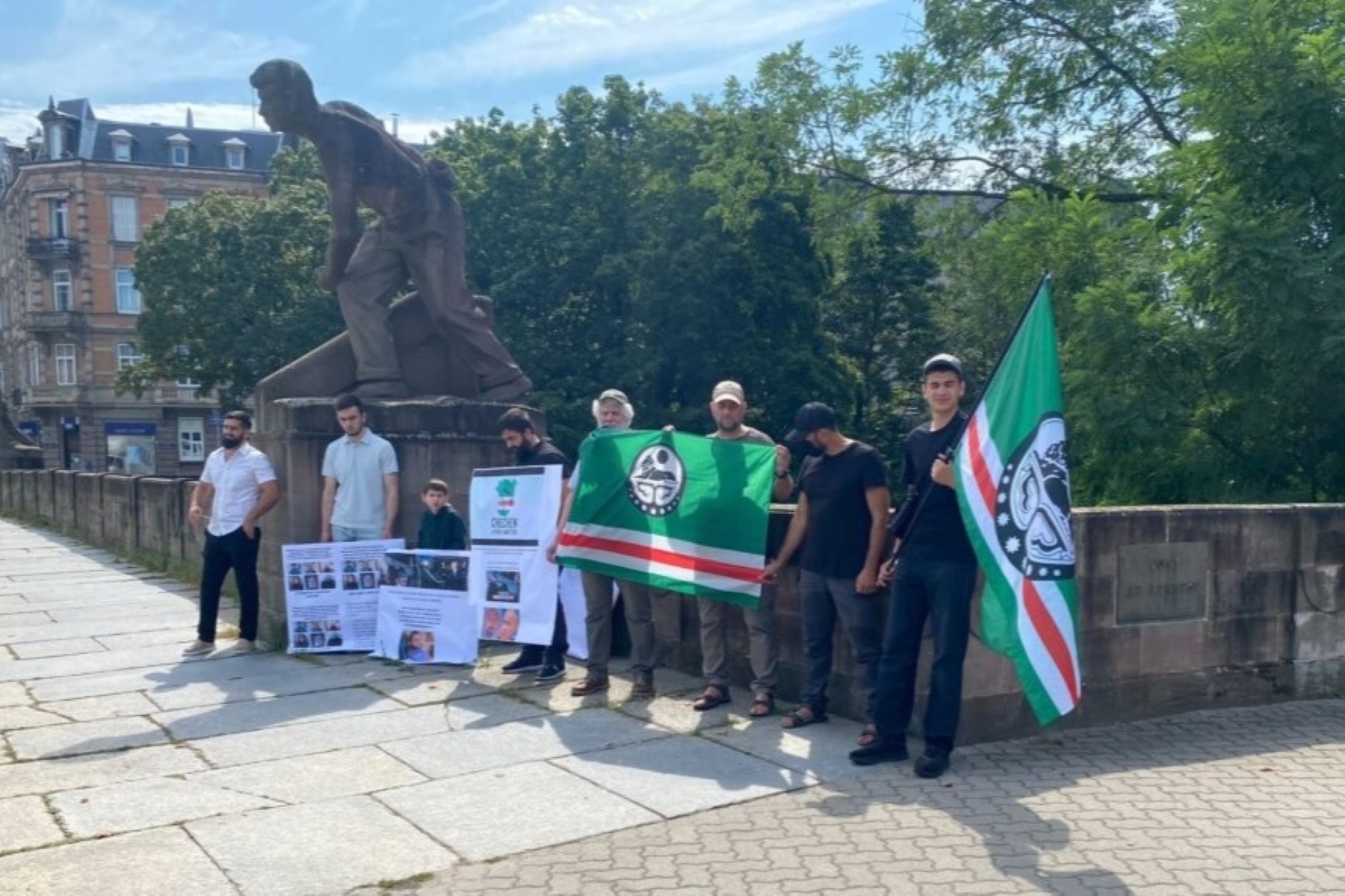
‘The Chechen diaspora is scared’, says Fatima. ‘On 8 August, we tried to organise a mass protest in Paris against Krasikov’s release. It was extremely difficult to get permission because of the Olympic Games, but even when we managed to get this permission, only a few people dared to come to the demonstration.’
‘Chechens are frightened’, says Fatima. ‘They feel that something like the Khangoshvili slaughtering could happen again, but this time it would go unpunished.’
‘By releasing Krasikov, Western governments showed us that our blood means nothing’, adds Ayub. ‘It was a message to our people that anywhere, in the West or in the East, anyone could kill a Chechen without any consequences. When Zelimkhan Khangoshvilli’s slaughtering was recognised as a political killing, it was a victory for the Chechen community, but now German officials have forgotten all about it.’
Ayub highlights that the same prisoner exchange saw Russian opposition figures released, while Chechen political prisoners were ‘forgotten’.
But Russia is not alone in its disregard for Chechens: Muhammed Abdurakhmanov, a representative of Chechen human rights organisation Vayfond, says that Germany has frequently deported Chechen refugees to Russia. While Germany minimises contact with the Russian authorities, they nonetheless comply with the directives.
He adds that in several such cases, refugees have had very strong immigration cases, but the authorities appeared determined to pursue their deportation; little wonder that Chechen refugees have such little faith in Western authorities. In contrast, ethnically Russian asylum seekers appear frequently to have more easily secured refugee status in Europe.
Such a context leads to an additional wariness from most Chechen diaspora groups of aligning themselves with other causes or activist groups that might contribute to a case against them. For example, some of the activists I spoke to note that they felt they could not safely take part in recent counter-demonstrations against British right-wing extremist protests.
‘We just don’t want to be the ones penalised’, says activist Ali Bakaev. ‘I love the UK, and it gives me hope for a better future for my children. But because of Russian propaganda, Western authorities are very suspicious toward Chechens. So we feel that if something goes terribly wrong, we will be named responsible.’
Chechnya in the Western imagination
The way in which Chechens are portrayed in Western media also contributes to their treatment by Western authorities, simultaneously fueling and complicating the work of activists abroad.
Comparing the way in which Chechnya and Ukraine are reported on in Western media makes clear the biases.
Chechen stories are avoided, viewed as both complex and excessively ‘other’: such people are likely Muslim, and associated by right-wing media with brutality or terrorism. Western media across the political spectrum also frequently fails to distinguish between the Russian occupying regime in Chechnya, headed by its Kremlin-installed leader Ramzan Kadyrov, and actual Chechen people.

Such an elision is not just lazy journalism, but actively misleading: Kadyrov is extremely unpopular across almost all Chechen demographics, from boomers to zoomers, and from modern feminist women to conservative Salafi young men.
Nonetheless, Western media insists on describing Kadyrov as the leader of Chechnya, and refers to Russian police in the region as ‘Kadyrov’s forces’. In contrast, the occupying Russian authorities in Ukraine’s Donetsk and Crimea are never referred to as Donbass or Crimean governments by such media.
Chechen independence leaders, however, have repeatedly been falsely accused by international media of being either cynical bandits or Salafi jihadis, with the Chechen fight for freedom and survival uncritically labelled as being driven by a religious agenda.
In contrast, Ukrainian stories focus on the humanity and accessibility of their subjects, and are seen as having broad appeal. There are many English-language stories on the heroism of Ukrainian soldiers fighting against Russia, but few such humanising stories about Chechens, despite their acts of mercy and bravery in the fight against Russia.
On top of this, while commentators on Ukrainian stories are generally themselves Ukrainian, comments on Chechen stories rarely are.
One facet of this is that the comments of Russian opposition figures are often given undue airtime and weight in Western media, with Chechnya lumped into being part of the ‘Russian agenda’ and not a standalone topic.
Whether opposition leader Alexei Navalny’s widow Yulia Navalnaya condemning Russian decolonisation, or leading opposition activist Mikhail Khodorkovsky asserting his readiness to engage in ‘war’ to ensure that the North Caucasus remained under Russian control, a Russian political figure’s opposition to Putin’s regime should not give them carte blanche to hold forth on the North Caucasus.
The other go-to is the Western ‘expert’ on the matter, who does not speak Chechen and is not in contact with people within the republic. While they might be knowledgeable and closely following Chechen media, they should not be seen as substitutes for primary sources.
The platforming of such ‘experts’ stems in part from the difficulty of finding people within the region who are able to speak openly on the issue, due to the very real security risks faced by anyone expressing opinions that don’t align with the regime’s agenda. But it is also due to a failure by Western outlets and politicians to treat the subject as worthy of anything more than a cursory investigation.
An opportunity for change
Russia’s full-scale invasion of Ukraine may inadvertently and unexpectedly offer an opportunity to Chechen independence activists, both by shifting tactics amongst activists and through changes to attitudes towards Russia.
‘Before Russia waged a full-scale attack on Ukraine in 2022, there were some Chechen bloggers, but we weren’t so active. Now we are trying to reach our youth so they won’t give up, and to mobilise other nations that have to live under the Kremlin’s occupation’, says Ali, one of the most visible Chechen pro-independence activists on TikTok.
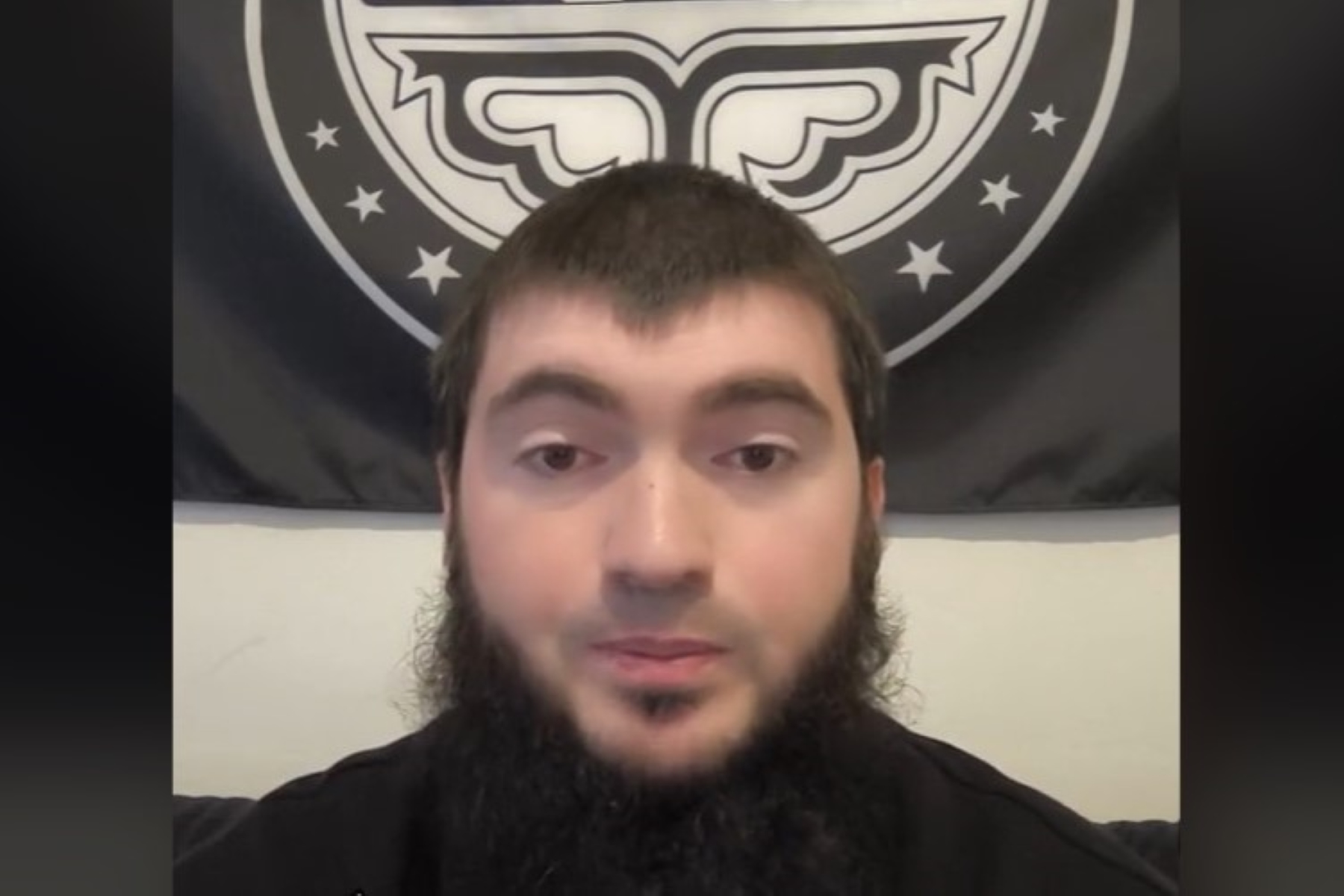
‘We are also trying to explain to Ukrainians that Russia lied about Chechnya, that Chechen people were never bandits or terrorists who were promoting some political agenda, but just folks who were protecting their own homes from the Kremlin’s invasion, just like Ukrainians are doing now.’
More widespread discussions of Russian aggression and colonialism have also allowed changes to Chechens’ ideas of what might be possible, as well as sharpening opposition to Russia’s occupation of the republic and its attitude towards minority ethnic groups.
Ayub, a 35-year-old Chechen refugee from Germany, confirms that after Russia invaded Ukraine, Chechens ‘saw some hope of becoming free’.
‘We understand that speaking up is now a question of survival. We also know what happened with other nations that were assimilated by Russia: those people lost their identity but are still considered second-class citizens.’
Ayub adds that the war has provided a demonstration of Russia’s ‘genocidal politics’ towards Chechen people, whether sending them to the frontlines to fight Ukrainians, or waging a new wave of repression campaign against young Chechens, locking them in secret prisons on false charges if they refuse to fight for Russia or their relatives express pro-Ukrainian positions.
Islamophobia, colonialism, Russian crimes against humanity, and refugee rights are now also increasingly widely-discussed topics in the Western press.
The opportunity is ripe for Chechens to reshape Western ideas about their homeland, both in politics and amongst the general public. If Western politicians could understand, as their Ukrainian counterparts have done, that supporting Chechen liberation aligns with both the public’s values and broader security aims, the discussion could shift dramatically.
In 2009, Russia officially announced its victory in the Russian-Chechen war. In the years since, Kremlin rhetoric has labelled Chechens as ‘bandits’ and ‘Islamic extremists’, with such narratives only beginning to be questioned in light of similar rhetoric regarding Ukrainian ‘Nazis’.
Even if long overdue, such reckoning with Russian narratives and clear public denouncements of Russian imperialism provide Chechen refugees and activists with some hope — both of Westerners better understanding their predicament, and perhaps even of a Ukrainian victory on the frontlines.
‘The first president of independent Chechnya, Dzhokhar Dudayev, was telling the truth when he warned that Russia wouldn’t stop with Chechnya and would attack Ukraine’, says Ali Bakaev. ‘Dzhokhar also told the truth when he declared that Russia would crumble after the Ukrainian sun rose, and I hope we are seeing that now.’




 30 September 2024
30 September 2024
